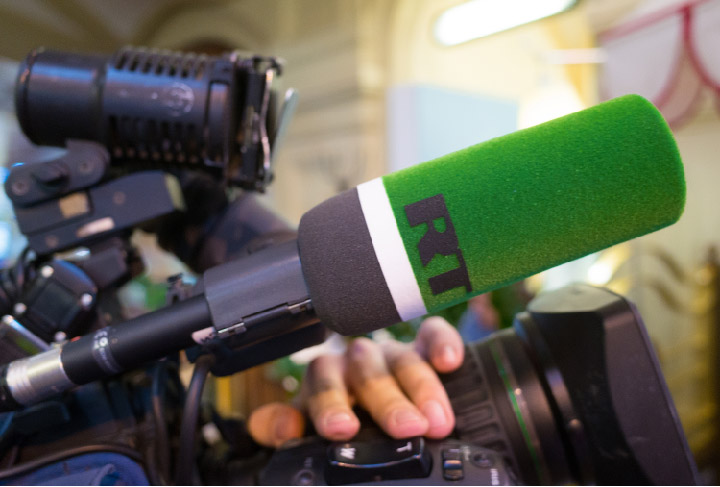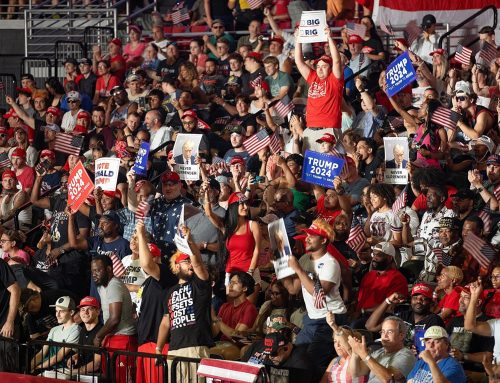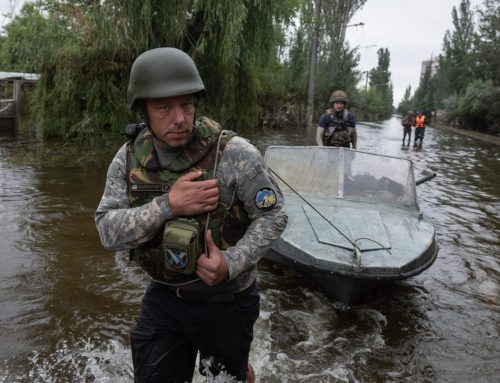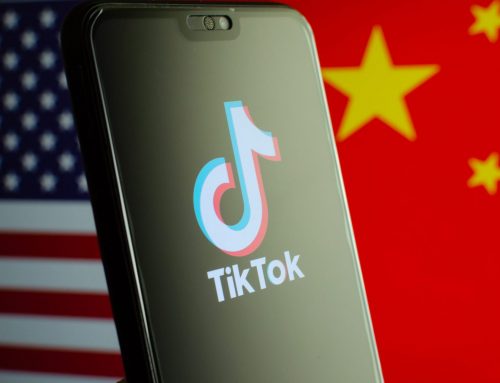Russia’s coronavirus vaccine coverage last week featured, as per usual, positive news about Sputnik V—such as Argentina starting local production of Sputnik V, the arrival of Sputnik in Venezuela, and reports of the vaccine’s overall efficacy—and negative developments related to other vaccines. Of particular note was the promotion of a somewhat misleading claim from the Sputnik V Twitter account that there are “significantly more deaths following vaccination with Pfizer” than other vaccines, while noting in fine print that no causal link between vaccines and deaths has been established. There were also insinuations that Pfizer is colluding with the media and regulators to elevate safety concerns related to other vaccines while suppressing questions about its own safety. Russian state media’s coverage of the Derek Chauvin guilty verdict also followed a predictable script, with RT amplifying racial divisions in the United States while criticizing celebrities, media, and Democratic politicians for amplifying racial divisions in the United States. Finally, in the aftermath of the Czech Republic’s decision to expel Russian diplomats for Russia’s alleged involvement in a 2014 arms depot explosion, Russian state media and diplomats denied the allegations, elevated Czech President Zeman’s statement suggesting a potential alternative explanation for the blast, and criticized countries expelling Russian diplomats over the incident.
Once again, Xinjiang was the most mentioned topic last week by Chinese official and diplomatic accounts on Twitter. The United Kingdom Parliament’s decision to officially label the Chinese government’s policies in Xinjiang as “genocide” was predictably met with Chinese officials’ anger. The Chinese Ministry of Foreign Affairs called the British pronouncement “an outrageous lie,” while a couple of diplomats shared a People’s Daily article about the “hidden agenda” behind the parliament’s decision. In a pattern observed in previous weeks, the Chinese MFA’s top spokespeople Hua Chunying and Zhao Lijian shared an article written by two American commentators that argued that “the Xinjiang genocide allegations are unjustified.” Several Chinese embassies have since followed suit (in Hungary, Ireland, and more). Other points of note were the return of the happy dancing Uyghur trope, more attacks on the BBC (using an earlier “viral clip” where young Chinese journalists deconstructed BBC reporting), and labelling all critics of Chinese policies in Xinjiang as “imperialist countries.” Another predictable theme last week was criticism of the United States. The Derek Chauvin guilty verdict provided an opportunity for a slew of content attacking the United States’ poor track record on racism, with Zhao Lijian blasting Nancy Pelosi’s post-trial comments with an “I can’t breathe” tweet reminiscent of Hua Chunying’s trolling over the summer. State media followed suit with CGTN publishing “Black Americans still ‘can’t breathe’ after Chauvin’s conviction.” Pivoting to broader attacks on U.S. democracy, Chinese state councilor Wang Yi’s statement that “democracy is not Coca-Cola” was also widely relayed by Chinese diplomats and state media. In case anyone had doubts about the metaphor’s exact meaning, Hua Chunying specified that the “syrup produced by the United States” would make the world “lifeless and dull.” Finally, Xi Jinping’s speech at the Boao Forum in Hainan gave him a chance to denounce the “unilateralism pursued by certain countries.” Xinhua contrasted China’s promotion of cooperation with others’ “cold-war and zero-sum mentalities,” while CGTN warned about the Unite States’ economic decoupling plans as “hell paved with the so-called ‘good intentions.’” India’s struggle to rein in the spread of the coronavirus within its borders also prompted a dual-track response from the Chinese propaganda apparatus. On one hand, there were efforts to portray China as India’s true friend (this despite vitriolic coverage of India during last year’s border clashes), with Zhao Lijian and Hua Chunying expressing the Chinese government’s concern and willingness to help. State media and other diplomatic accounts followed suit with the motto “a friend in need is a friend indeed.” In parallel, however, Chinese messaging also focused on criticizing the United States for allegedly ignoring India’s pleas for help (this coming before the Biden administration’s pledge to send significant aid to India). The head of China Daily’s EU bureau accused Washington of only helping India to spite China and Pakistan, while the Global Times warned that all countries should pay attention to how a “selfish” United States had abandoned India in its hour of need.
On the Iranian dashboard, #JCPOA remained the most used hashtag used by Tehran-linked accounts last week with 61 mentions, but #tourism and #covid19 were close behind with 60 and 55 mentions respectively. Iranian messaging largely focused on rejecting a proposal for a phased lifting of sanctions; however, far-right Iranian cleric Hamid Rasaee blasted President Rouhani, Foreign Minister Zarif, and other “Westernists” for seeking to revive the deal in a series of highly engaged-with tweets. Rasaee also announced via tweet that he is currently hospitalized with the coronavirus. Broader coronavirus coverage focused on the catastrophe unfolding in India, and on new imports of the Sputnik V vaccine arriving in Iran from Russia. State media outlet IRNA reported that phase 3 testing has begun on Iran’s domestically developed Barekat Covid-19 vaccine, with PressTV claiming that early tests found the vaccine to be 70 percent effective. Tasnim News reported that General Mohammed Ali Haqbayan, a senior Quds Force commander, died of coronavirus complications. As with Russian and Chinese state media coverage, Iranian media covered the conviction of Derek Chauvin for the murder of George Floyd mostly factually, with a few stories highlighting racism in U.S. society. A handful of stories also reported on the killing of Ma’Khia Bryant in Ohio by police on the same day. Perhaps in retaliation for Israel’s alleged involvement in the Natanz explosion last week, Iranian news agencies reported eagerly on an explosion at a missile factory in Israel; although, Israeli sources report that the explosion occurred during a routine test, and there are no reports of damage or casualties. Tasnim also reported on Palestinians celebrating rocket attacks from Gaza into Israel, quoting “Hebrew-speaking sources” in their reporting on the effects of the attack. PressTV reported on clashes in Jerusalem between Palestinians and far-right Jewish protestors and Israeli security forces, both in their own words and in coverage of statements from Hezbollah and Hamas, as well as on an alleged scheme by Saudi Arabia and Israel to overthrow King Abdullah II of Jordan to hand guardianship over al-Aqsa to the Saudis. The scheme was first alleged by the generally pro-Hezbollah Lebanese newspaper Al-Akhbar, and reported on by Iranian media, as well as the generally pro-Hamas Middle East Monitor.
The views expressed in GMF publications and commentary are the views of the author alone.








